When navigating the logistics of transportation, one common query that arises is, “How much does a tanker trailer weigh?” Understanding the weight of these trailers is essential for ensuring compliance with regulations, planning for load capacity, and optimizing fleet operations. This article delves into various aspects related to the weight of tanker trailers, including the average weights of different types, factors affecting weight, and the implications for transport businesses.
Average Weight of Tanker Trailers
Standard Weight Classes for Tanker Trailers
Tanker trailers are specialized vehicles designed for the transportation of liquids, ranging from water to hazardous materials. There are several types of tanker trailers, and their weights vary depending on design, materials, and capacity.
| Type of Tanker Trailer | Average Weight (in lbs) | Payload Capacity (in lbs) | Total Weight (Truck + Trailer) (in lbs) |
|---|---|---|---|
| Water Tanker | 8,000 – 12,000 | 18,000 – 20,000 | 26,000 – 32,000 |
| Fuel Tanker | 12,000 – 20,000 | 20,000 – 30,000 | 32,000 – 50,000 |
| Chemical Tanker | 10,000 – 15,000 | 15,000 – 25,000 | 25,000 – 40,000 |
| Cement Tanker | 15,000 – 25,000 | 20,000 – 30,000 | 35,000 – 55,000 |
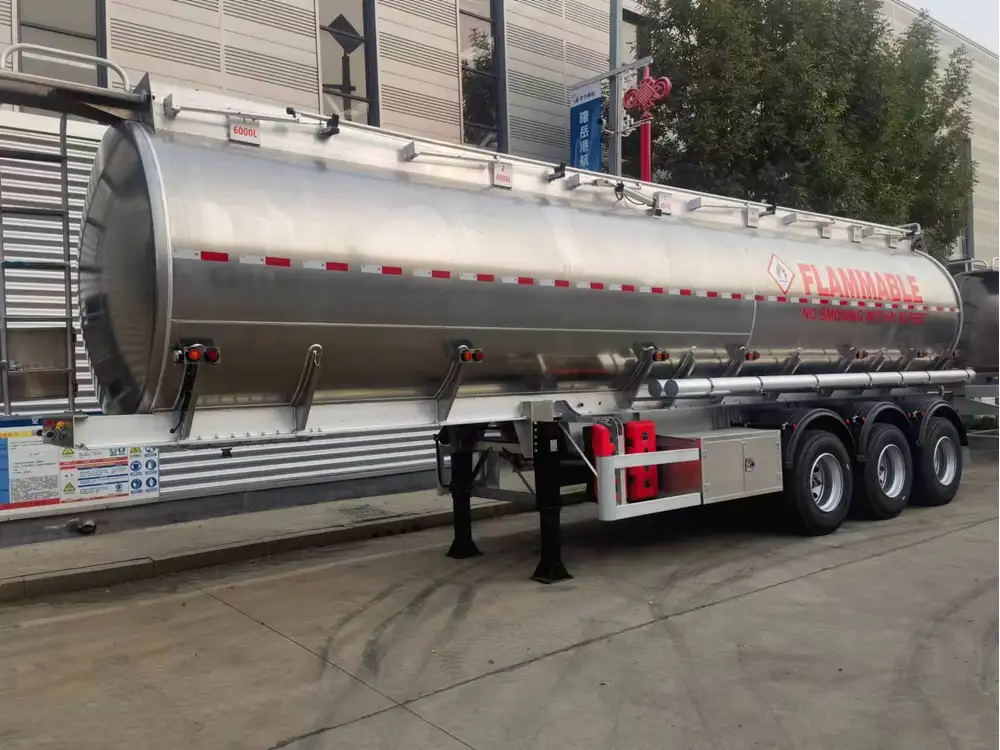
Legal Weight Regulations
In the United States, federal regulations dictate that the maximum Gross Vehicle Weight Rating (GVWR) for trucks and trailers combined should not exceed 80,000 lbs. This includes the weight of the trailer, truck, cargo, and any additional equipment. Understanding this limit is crucial for compliance and safety.
Factors Affecting the Weight of Tanker Trailers
Construction Materials
The type of materials used in construction significantly impacts a tanker trailer’s weight. Steel, aluminum, and composite materials offer different weight-to-strength ratios, influencing both the weight and durability of the trailer.
- Steel: Generally heavier but offers strength and durability.
- Aluminum: Lighter than steel, often used for fuel tankers to maximize payload capacity.
- Composite Materials: Emerging options that combine lightweight properties with strength.
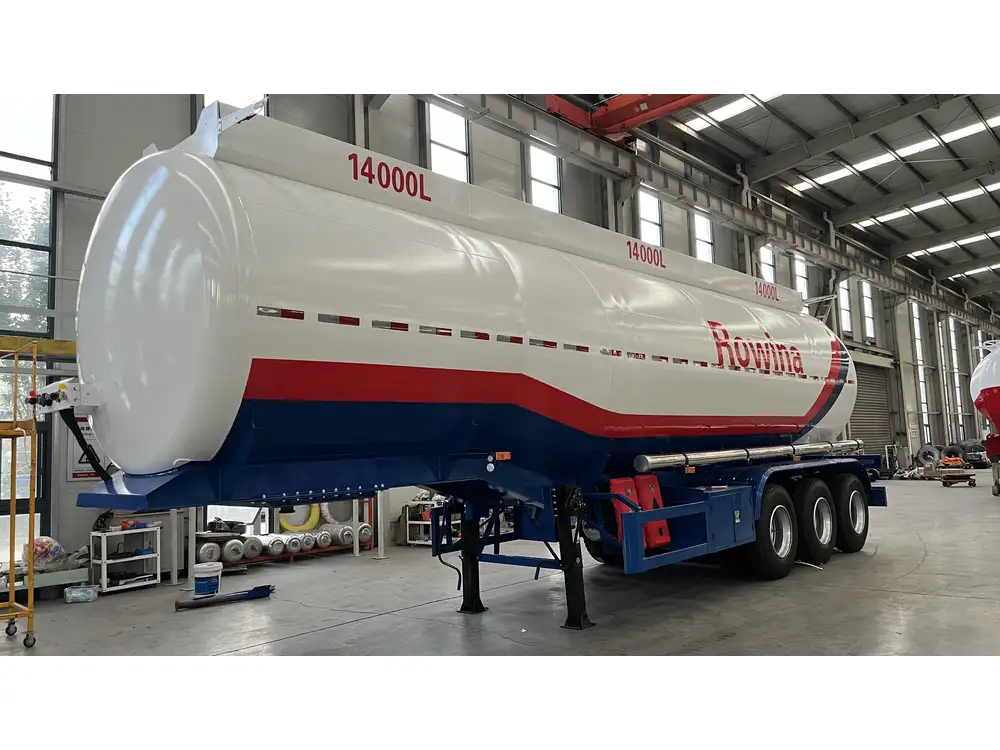
Design and Capacity
The design of the tanker trailer, including its shape, the number of compartments, and its ability to handle certain types of loads, can also affect the total weight. For instance, tankers designed for hazardous materials typically incorporate additional safety features, which can add weight.
- Single vs. Multi-Compartment Tanks: Multi-compartment designs allow for transporting different liquids but may weigh more due to additional internal structure.
Load Type and Density
The liquids transported play a crucial role in determining the effective payload and the overall weight. Different substances have different densities, influencing how much can be carried while adhering to weight restrictions.
- Water: 8.34 lbs/gallon
- Gasoline: 6.073 lbs/gallon
- Chemicals: Vary widely, averaging around 7-8 lbs/gallon.
Regulatory Compliance
As regulations evolve, manufacturers design trailers to meet specific safety and environmental standards. Compliance with these regulations not only ensures safety but can also affect the weight of emissions controls or other safety equipment.
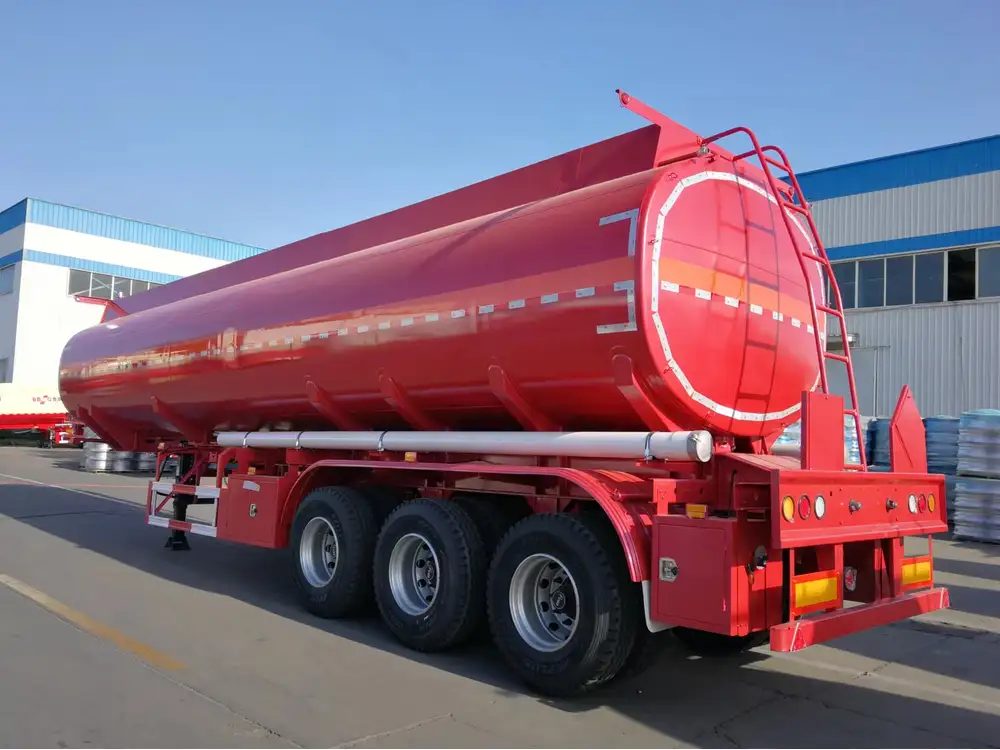
Implications of Tanker Trailer Weights for Operators
Efficiency and Cost Management
Understanding trailer weights allows fleet operators to optimize their loading processes. This optimization leads to improved fuel efficiency and reduced operational costs. Overloading a tanker trailer can result in increased wear and tear on both the trailer and the towing vehicle, leading to higher maintenance costs.
Route Planning and Regulations
Each state has specific regulations governing the maximum allowable weight on highways. Engaging in efficient route planning by considering weight limits can save companies from costly fines or delays.

Safety Considerations
Heavy-duty vehicles often face unique challenges regarding stability and stopping distances. For instance:
- Increased weight can lead to longer stopping distances.
- Overloaded tankers may have a higher risk of rollovers, especially on turns or during adverse weather conditions.
By maintaining an appropriate weight, operators can enhance safety for drivers, cargo, and other road users.
Maintaining Suitable Weight Balances
Load Distribution
Proper distribution of weight within the tank is crucial for trailer performance and safety. Uneven weight can lead to instability, affecting braking and handling. Operators should consistently monitor and adjust load distribution as needed.
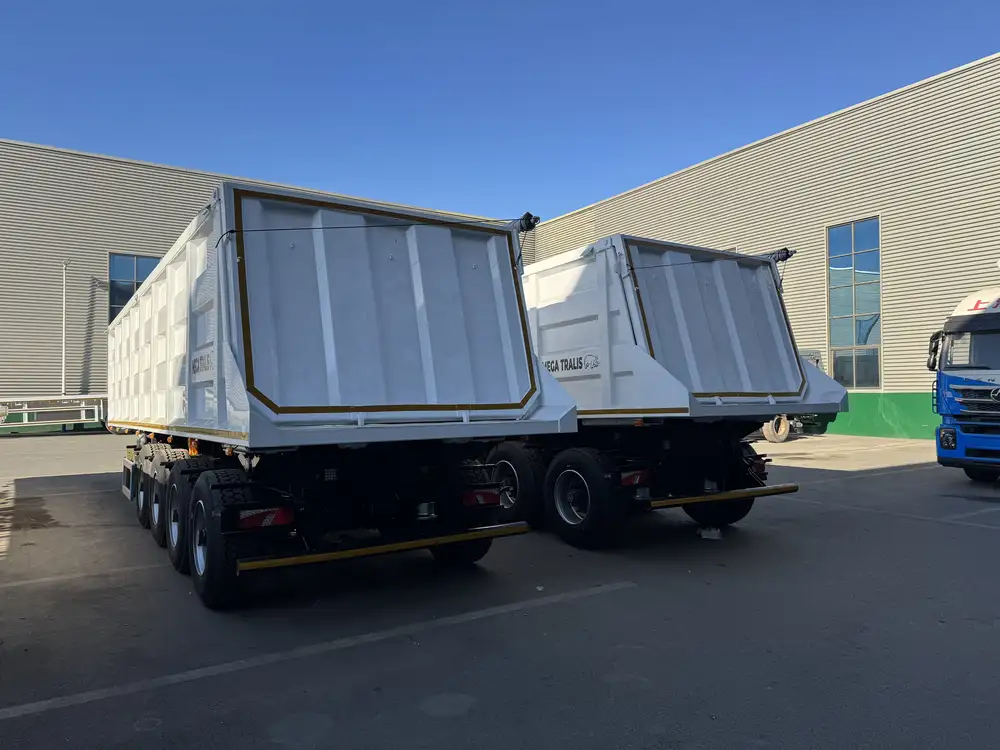
Regular Maintenance Checks
Routine inspections and maintenance are essential to ensuring that trailers remain within their optimal weight limits. Checking for damage, corrosion, or weight inflation in tires is important for preserving efficiency and safety.
The Future of Tanker Trailers
Innovations in Manufacturing
As technology advances, the design and materials used in tanker trailer construction continue to evolve. Manufacturers are exploring lighter and more durable materials, like advanced composites, which can help reduce overall weight while maintaining structural integrity.
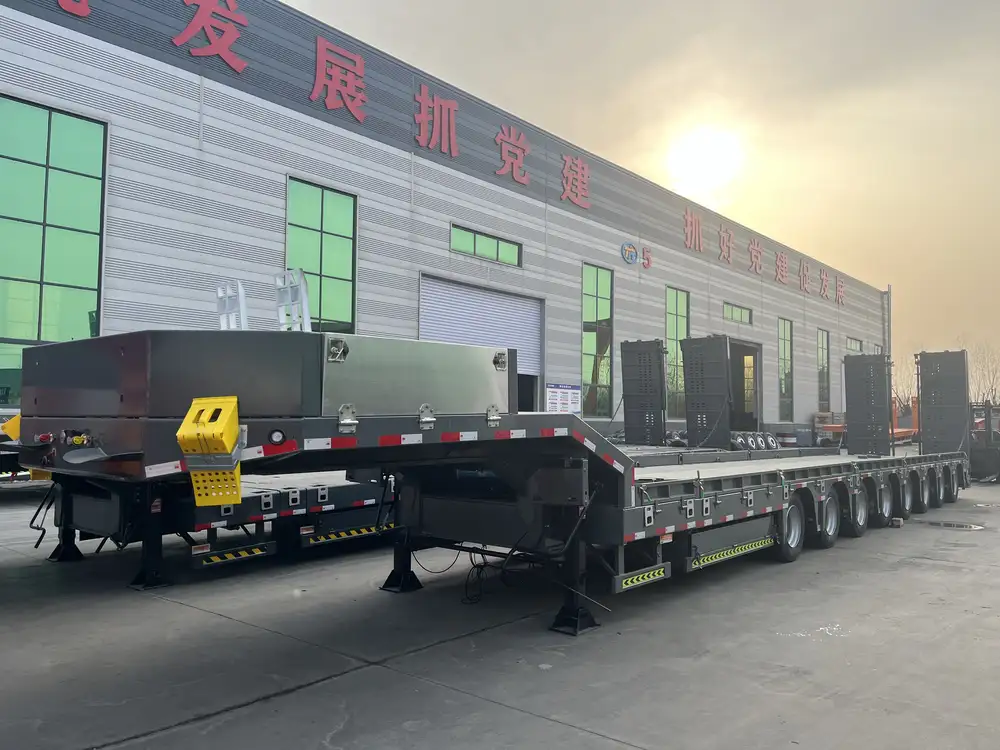
Regulations and Environmental Considerations
With growing environmental concerns, regulations are tightening around emissions and payloads. Understanding these trends will not only be vital for compliance but also for establishing a competitive edge.
Data-Driven Decisions
The introduction of telematics in the trucking industry is revolutionizing how operators manage their fleets. Utilizing real-time data can provide insights into trailer performance, weight management, and more, leading to improved decision-making.
Sustainability and Environmental Impact
With increasing pressure to minimize environmental impact, operators may look for tankers that not only adhere to weight regulations but also utilize innovative systems designed to limit emissions and fuel consumption. Sustainable practices are rapidly becoming a selling point in the transport industry.

Conclusion
Understanding how much a tanker trailer weighs and the factors that affect this measurement is essential for operators in the transport industry. From choosing the right type of trailer to managing loads effectively, each decision impacts efficiency, safety, and compliance. By being aware of the average weights, legal limitations, and the implications for operation, businesses can make informed choices that ultimately lead to great success in their logistics endeavors.
Key Takeaways
- Average weights of various tanker trailers vary significantly based on their design and materials.
- Compliance with legal weight regulations is vital for operational integrity.
- Innovations and sustainability practices will shape the future of tanker trailers.
This comprehensive guide serves to inform potential buyers and operators about the intricate details surrounding tanker trailer weights, aiming to facilitate better decision-making and improved operational efficiency in the transport sector.



